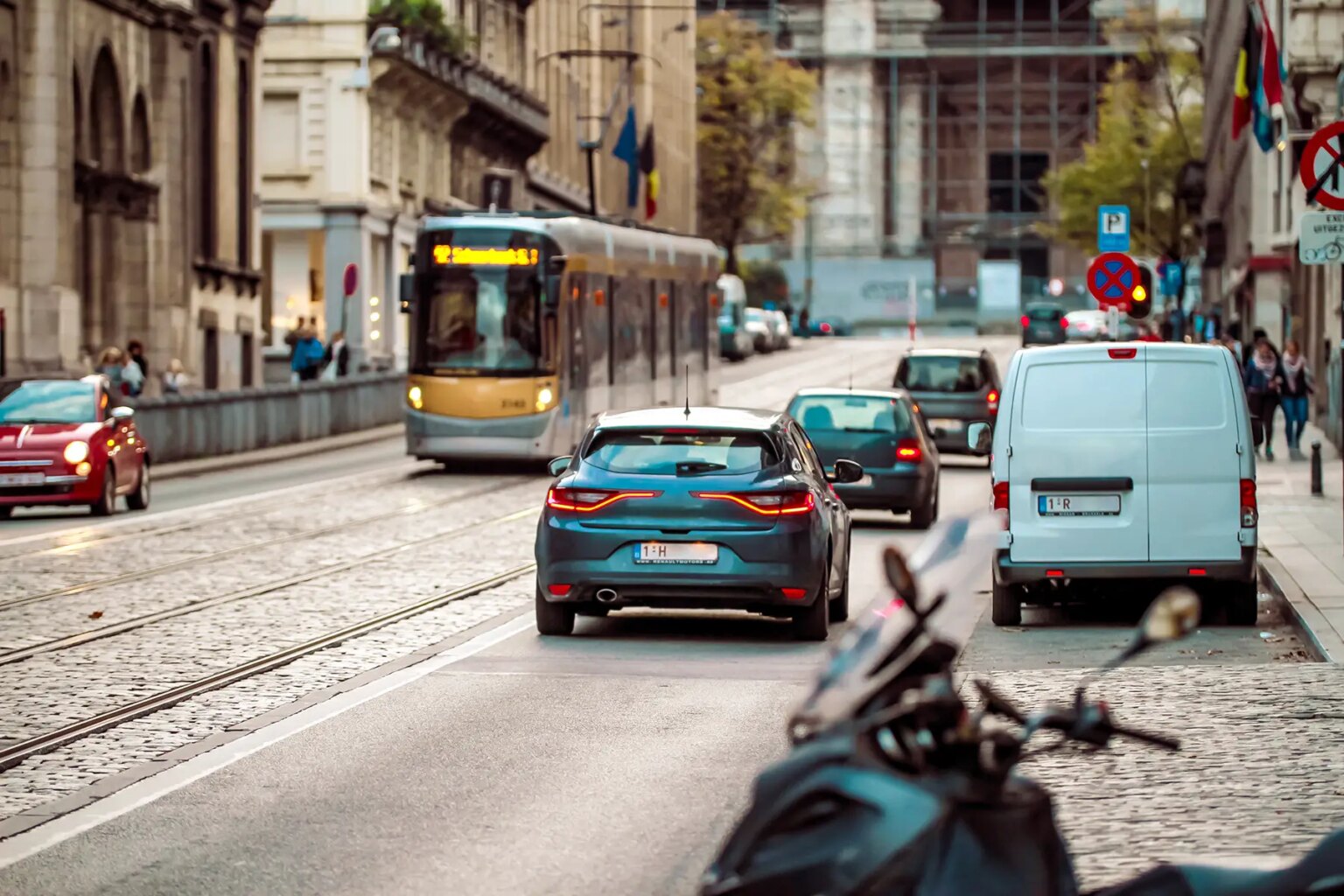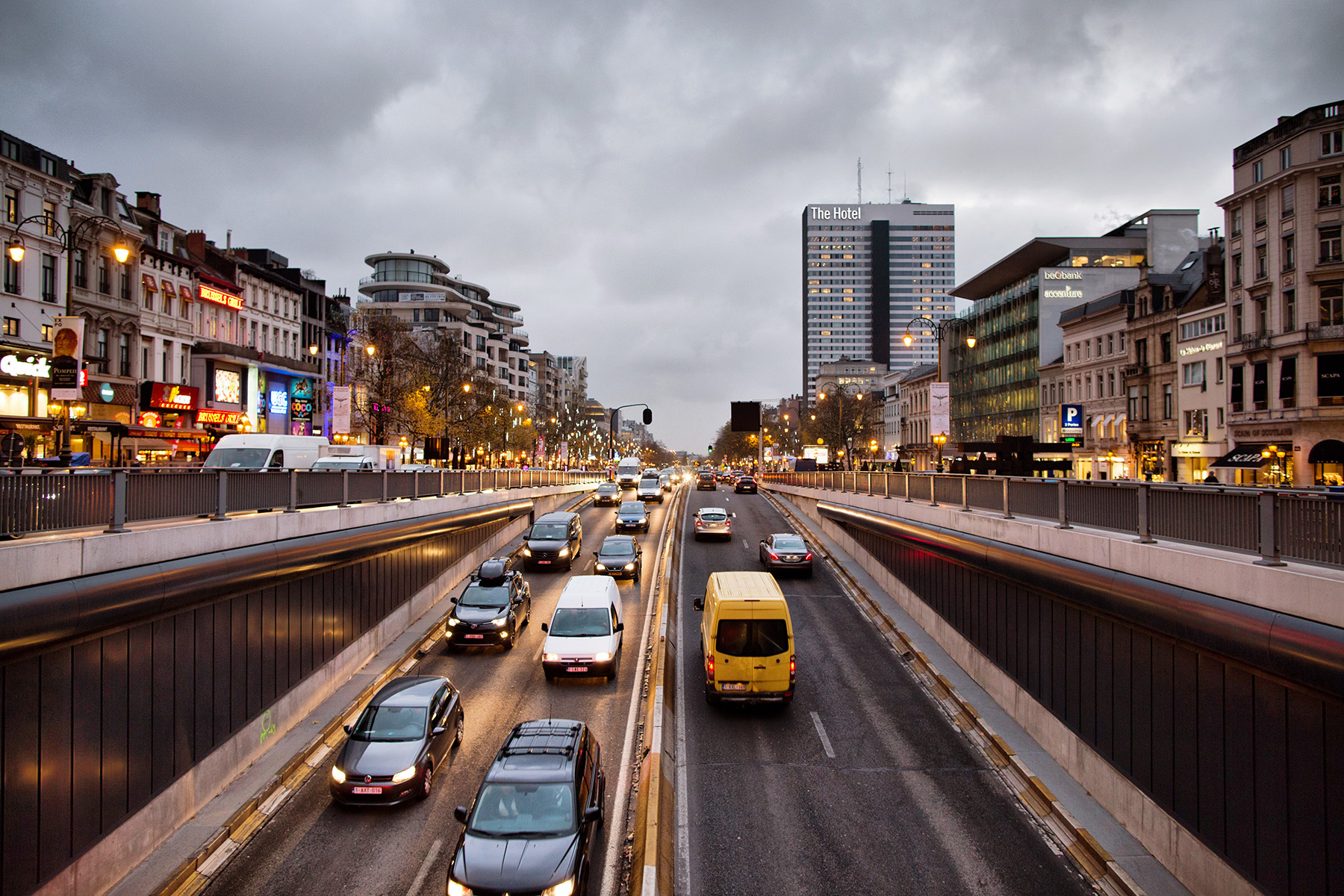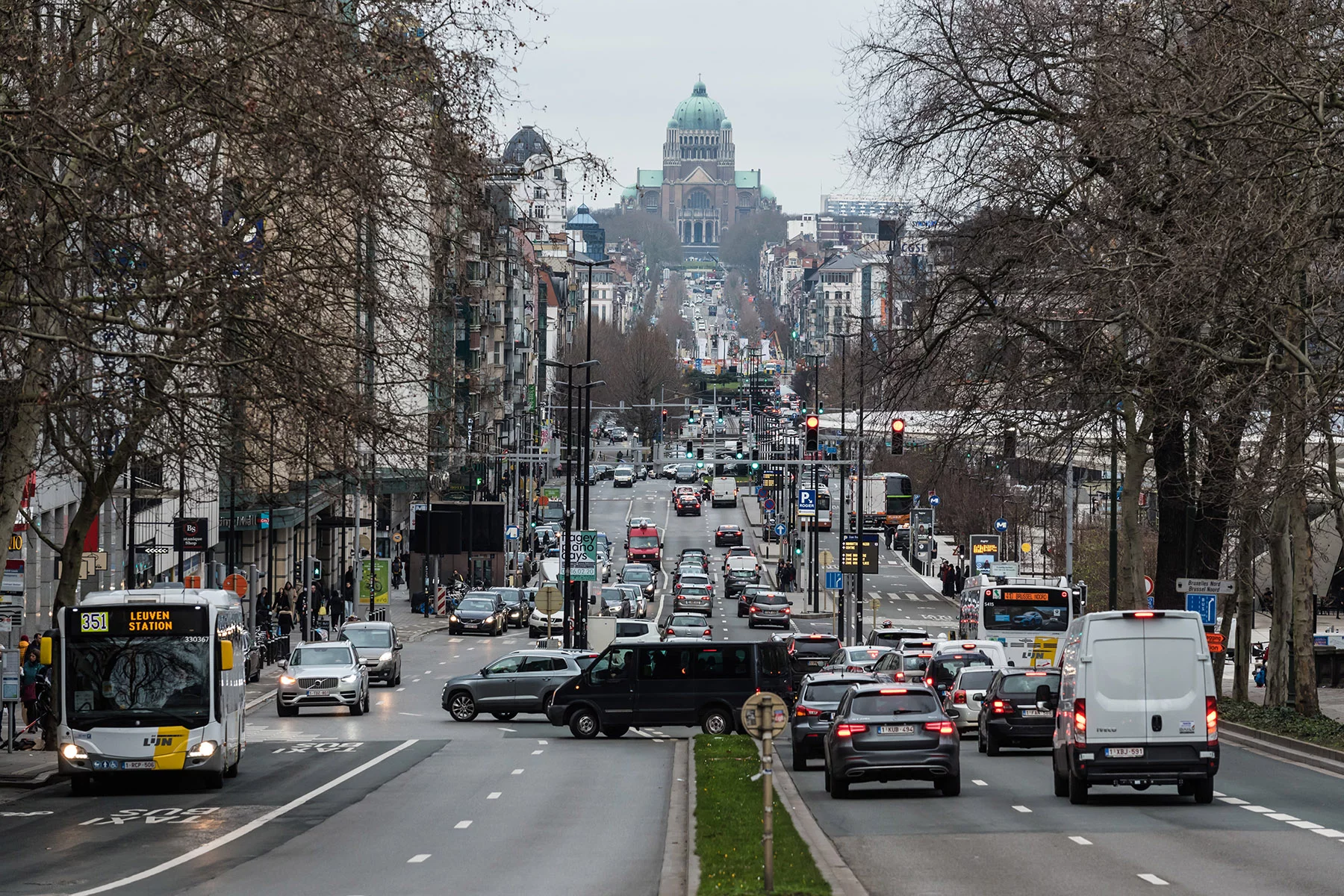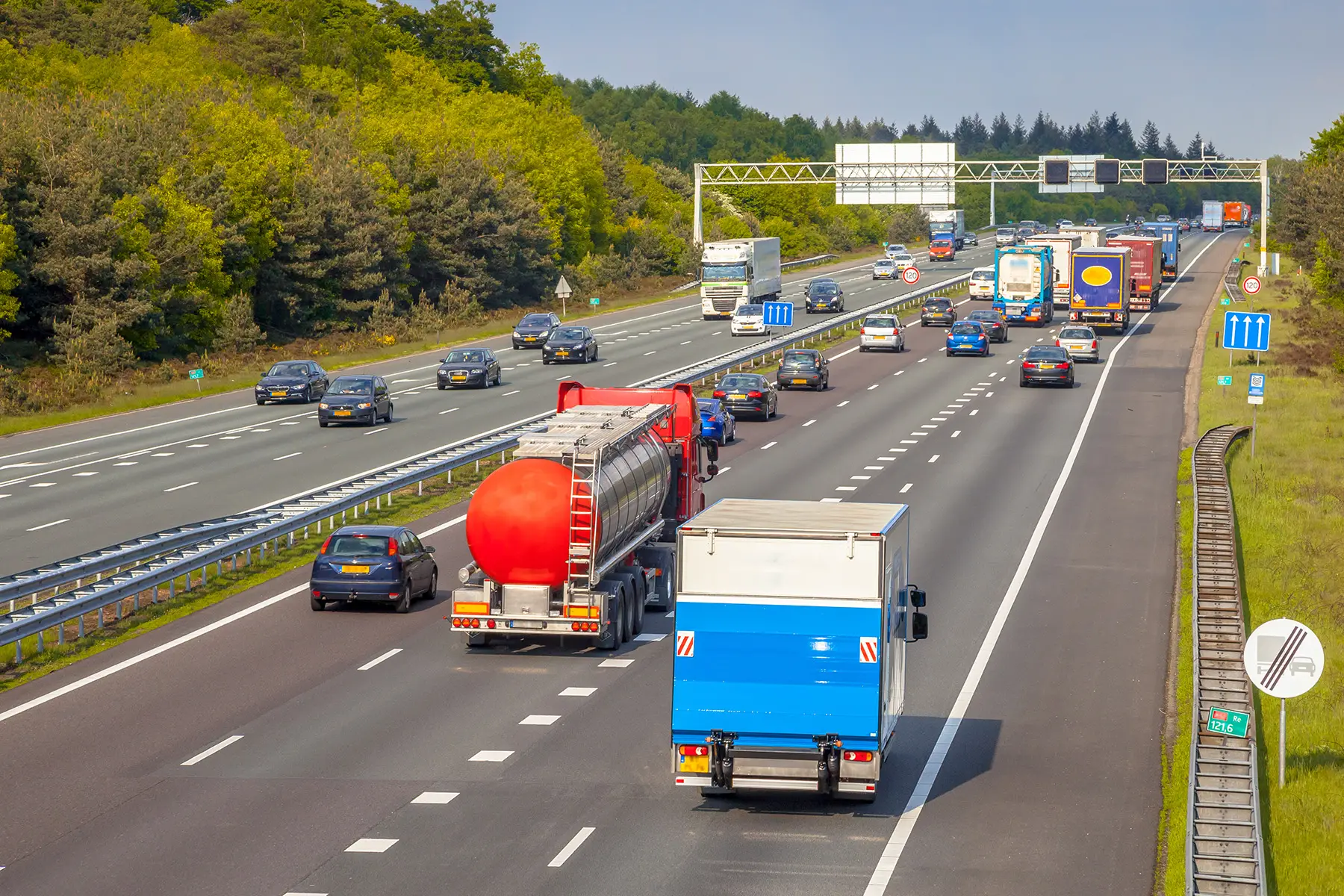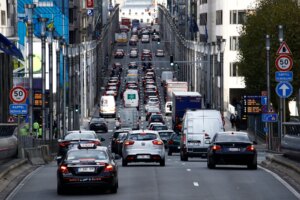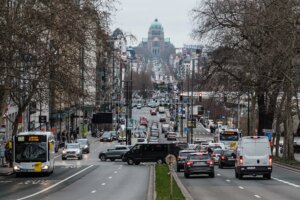New or used? Electric or fuel-based? Just like in any other country, there is much to consider when it comes to buying a car in Belgium. But as an expat, these choices can seem more daunting. After all, you might not be familiar yet with all the regulations for car ownership and sales in the country. Or you may still be trying to get your head around how the car market works.
So, to help you navigate the new roads and get you driving in Belgium, this article includes the following information:
- Buying a car in Belgium
- Who can buy a car in Belgium?
- Buying a new car in Belgium
- Where to buy a new car in Belgium
- Electric cars and hybrids in Belgium
- Documents for buying/selling a car in Belgium
- Buying a used car in Belgium
- Where to buy a used car in Belgium
- Car registration in Belgium
- Car costs in Belgium
- Importing a car into Belgium
- Selling your used car in Belgium
- Equipment your car needs to have in Belgium
- Useful resources
AXA
Need coverage before you get behind the wheel in Belgium? Speak to the experts at AXA. Their car insurance policies can be tailored to the needs of you and your vehicle, whether you own an urban runaround or a 4X4 in the beautiful Belgian countryside. Give yourself peace of mind on the roads and get a quote for AXA car insurance today.
Buying a car in Belgium
Even though Belgium has an established and affordable public transport system with good connections between cities, many Belgians prefer to have their own vehicle. This is especially the case for those living in the suburbs and smaller towns throughout the country.
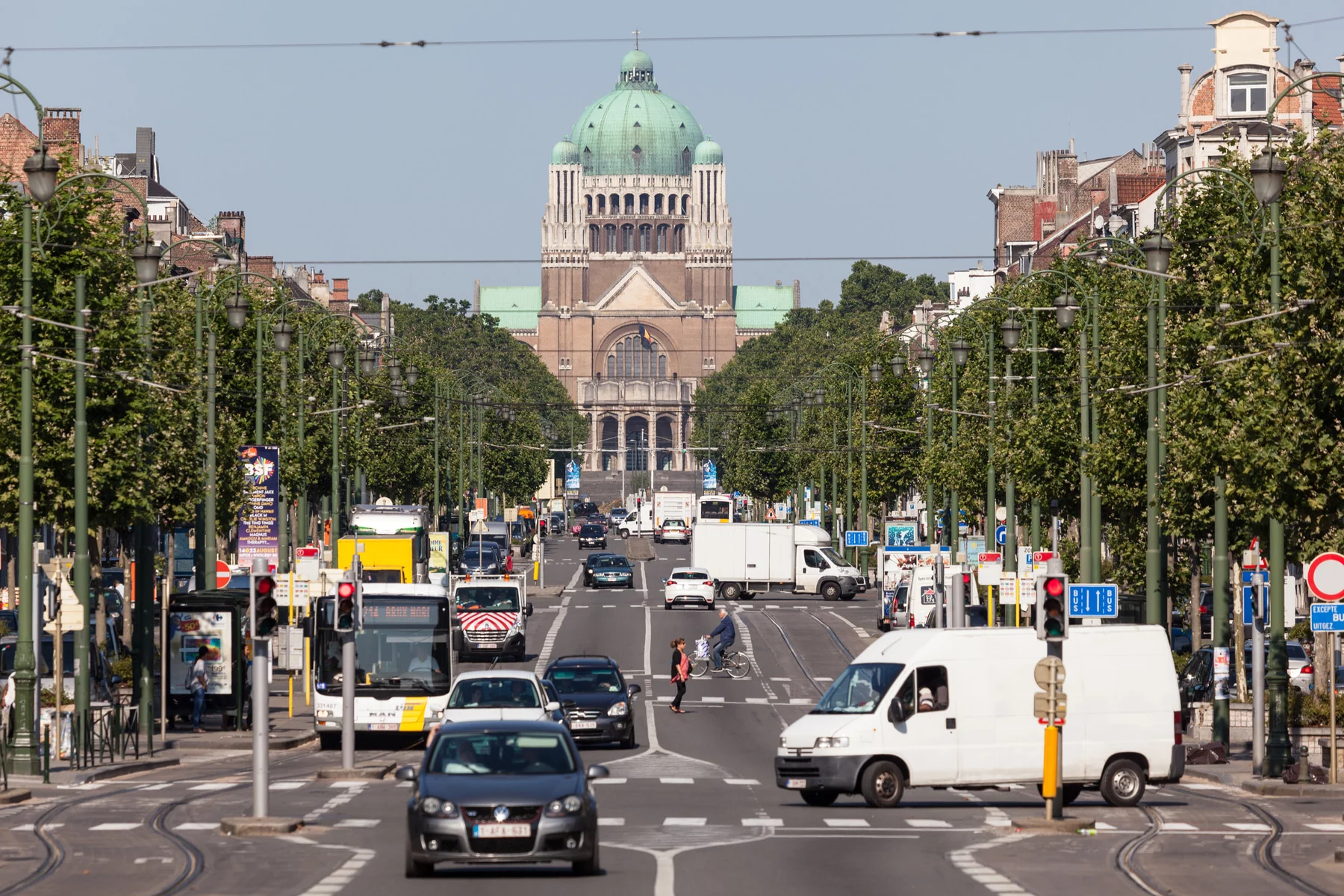
Around a million cars are sold in Belgium each year, the majority of which are used. However, car sales have taken a hit during the COVID-19 pandemic with most people working from home. Regardless, nearly 73% of all Belgian households own one car or more, and many couples with children at home own at least two or more.
Popular brands in the country include:
- BMW
- Peugeot
- Volkswagen
- Audi
- Volvo
Belgium has a well-regulated car market with competitive prices. This means that with the right information on regulations and dealers, it’s relatively easy to buy and register a car in the country.
Who can buy a car in Belgium?
Fortunately, both Belgians and foreign nationals can buy a car in Belgium. However, you will need to have a Belgian residence permit or proof of residence to register it and get it insured in Belgium.
To drive a car in Belgium, you must be at least 18. However, you don’t always need a Belgian driving license. For instance, if you have a driving license from an EU or EEA country (which includes Iceland, Lichtenstein, and Norway), you can continue using this in Belgium.
Buying a new car in Belgium
It’s exciting to own a brand-new set of wheels. Not only does buying a new car bring you the latest technology, no wear and tear, and a new warranty, it also gives you the chance to customize a model to your taste. Moreover, new cars are typically safer, more fuel-efficient, and environmentally friendly compared to older models.
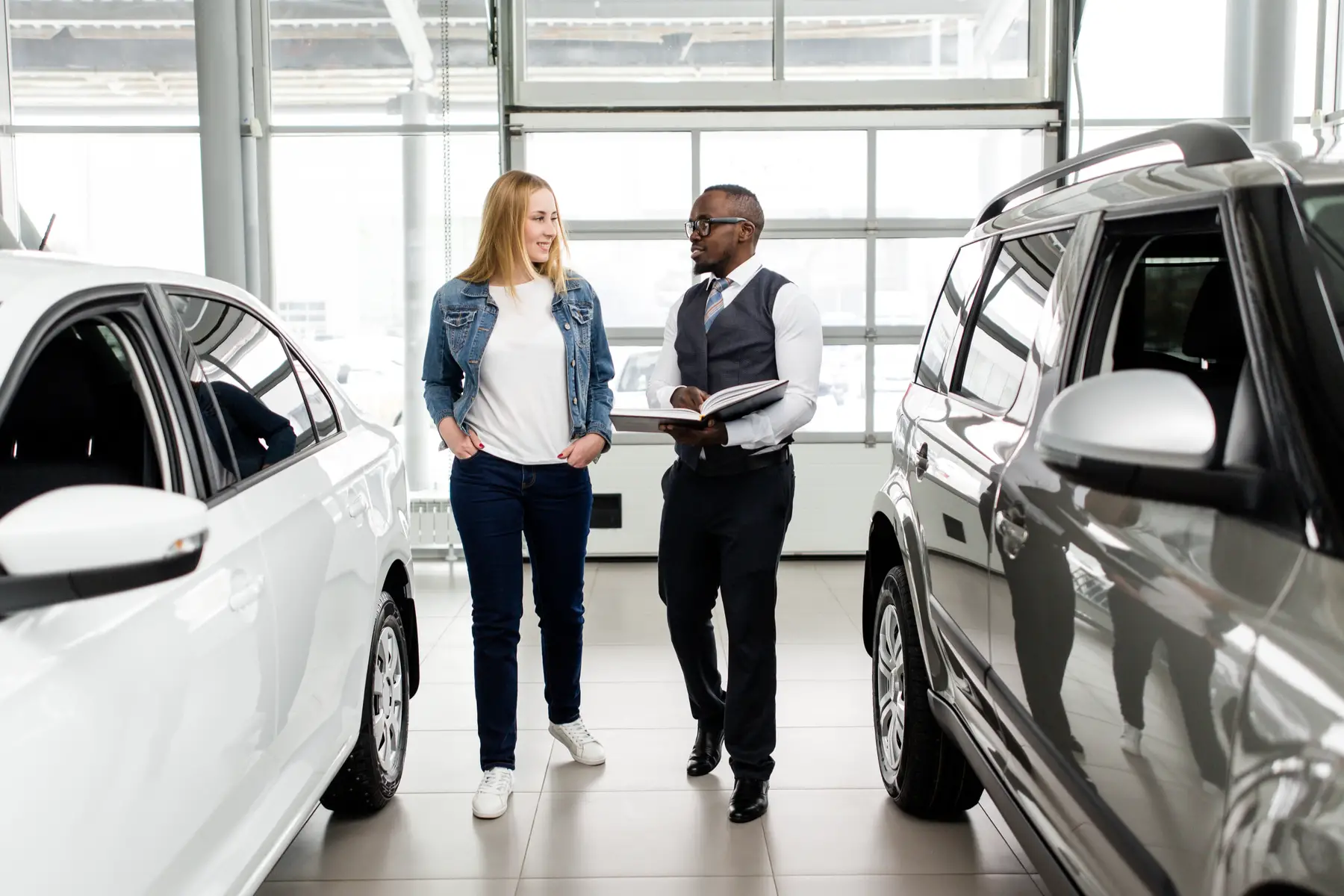
That said, there are some important downsides to consider, too. For instance, on average, a new car costs upwards of €35,000. So unless you have substantial savings, you will likely need to take out a loan to cover your purchase.
Some car dealerships in Belgium may give you the option to pay for your new car in installments through zero-interest car loans. However, this option can involve several costs that are not obvious at first glance. For instance, it can involve higher down payments or little to no discount on the car price.
Another downside to buying a new car is that they depreciate in value very quickly. In Belgium, banks offer a lower interest rate on loans for a new car, but quicker depreciation means that loan repayment periods are shorter with higher monthly amounts. Furthermore, some insurance providers may charge a higher premium for insuring new cars because they can be more expensive to repair in case of damage.
Where to buy a new car in Belgium
New cars in Belgium are mostly sold by car dealerships. You can approach a dealership directly or use a car broker to find and source a vehicle. Below is an overview of what these options involve.
Car dealerships in Belgium
Car dealerships (autoverdelers/concessionaires) own cars from specific brands, which they lease out or sell directly to customers. Dealerships usually have a physical showroom where you can go and see their cars and ask for a test drive.
You can search for a franchised car dealership based on the brand of car you are interested in buying. Car brands often provide a list of their franchised dealers per country (see a dealer list for BMW or Citroën, for example). This way, you can find a reliable car dealership close to you.
There are also bigger, independent car dealerships in Belgium, which deal in several car brands. In addition to providing a wide range of choices, these dealerships may provide additional services, such as financing and insurance options, an amount in return for your old car, and a maintenance contract. One example of such a dealership is Cardoen.
Car brokers in Belgium
Car brokers (automakelaars/agence automobile) are independent agents who can help you find the right car for you and negotiate a good price. They are the middlemen in the car market.

Buying a car through a broker can make a lot of sense if you aren’t a car expert yourself or aren’t too fond of negotiating prices. Moreover, car brokers can source vehicles from different dealerships across the country so you have a wider range of vehicles to choose from.
A simple online search will deliver you several links, contact details, and reviews for car brokers across Belgium. Some of the main ones are:
Buying a car in Belgium online
Many bigger car dealerships in Belgium have websites where you can check and even reserve cars online. However, it is best to confirm and sign your final order in person as this will give you a chance to see the car specifications that you have requested in person; not to mention negotiate a better price.
Electric cars and hybrids in Belgium
Sales of electric vehicles (EV) and hybrid cars are on the rise in Belgium. In 2021, they made up 23.5% of new car sales in Belgium (up from 14.3% in 2020). This includes 18.4% of cars fully charged from a power outlet (EVs and plug-in hybrid electric vehicles (PHEV)). Furthermore, 48% of Belgians said they plan to buy an electric or hybrid vehicle as their next car in a recent survey.
Belgian regions have different benefits when it comes to owning and driving an electric vehicle. For instance, in Flanders, zero-emission vehicles are exempt from vehicle registration taxes as well as annual road taxes. And in Brussels and Wallonia, zero-emission vehicles are only charged the minimum amount for both registration and road taxes. Moreover, 75% of the costs of charging EVs can be deducted from income taxes in Belgium.
You can buy both EVs and PHEVs at many car dealerships across the country. Popular models include:
- Volvo XC60 PHEV
- Nissan Leaf
- BMW 530e
- Tesla 3
- Mitsubishi Outlander PHEV
There are around 7,500 charging points across Belgium. You can search for charging stations close to you on Chargemap.
Documents for buying/selling a car in Belgium
Once you have decided which car to buy, the dealership will create an order form (bestelbon/le bon de commande). This form gives you the right to withdraw your purchase later if it turns out that the car doesn’t meet the specifications you have agreed on.
Therefore, it is important to make sure that it contains all the required information:
- Car make, model, year, color, and other options
- Agreed-upon price, which includes any discounts – also make sure to check the price without the additional 21% VAT
- Date and place where the order form is signed
- Date when the car will be delivered
- Underwriting of any credit
- Amount, if any, offered in exchange for your old car
After the car is ready to be picked up – or delivered to your home, if you have agreed on this with your dealership – you will need to make sure they provide the remaining documents. These include:
- The invoice, which contains the car make, model, year, engine size, date of purchase, the price with and without VAT, and the VAT amount
- The certificate of conformity, which confirms the car meets the technical specifications as per Belgian law (gelijkvormigheidattest/certificate de conformité)
- The pink form for registering the car
Buying a used car in Belgium
Since buying a new car is generally an expensive option, many Belgians opt for a used car instead. Prices for used cars in Belgium are approximately €17,000 on average for cars that are three to five years old and €6,000 for cars that are five to 10 years old. This makes buying used cars a far more affordable option. In fact, out of the one million passenger cars sold in Belgium in 2020, over 620,000 were used vehicles.
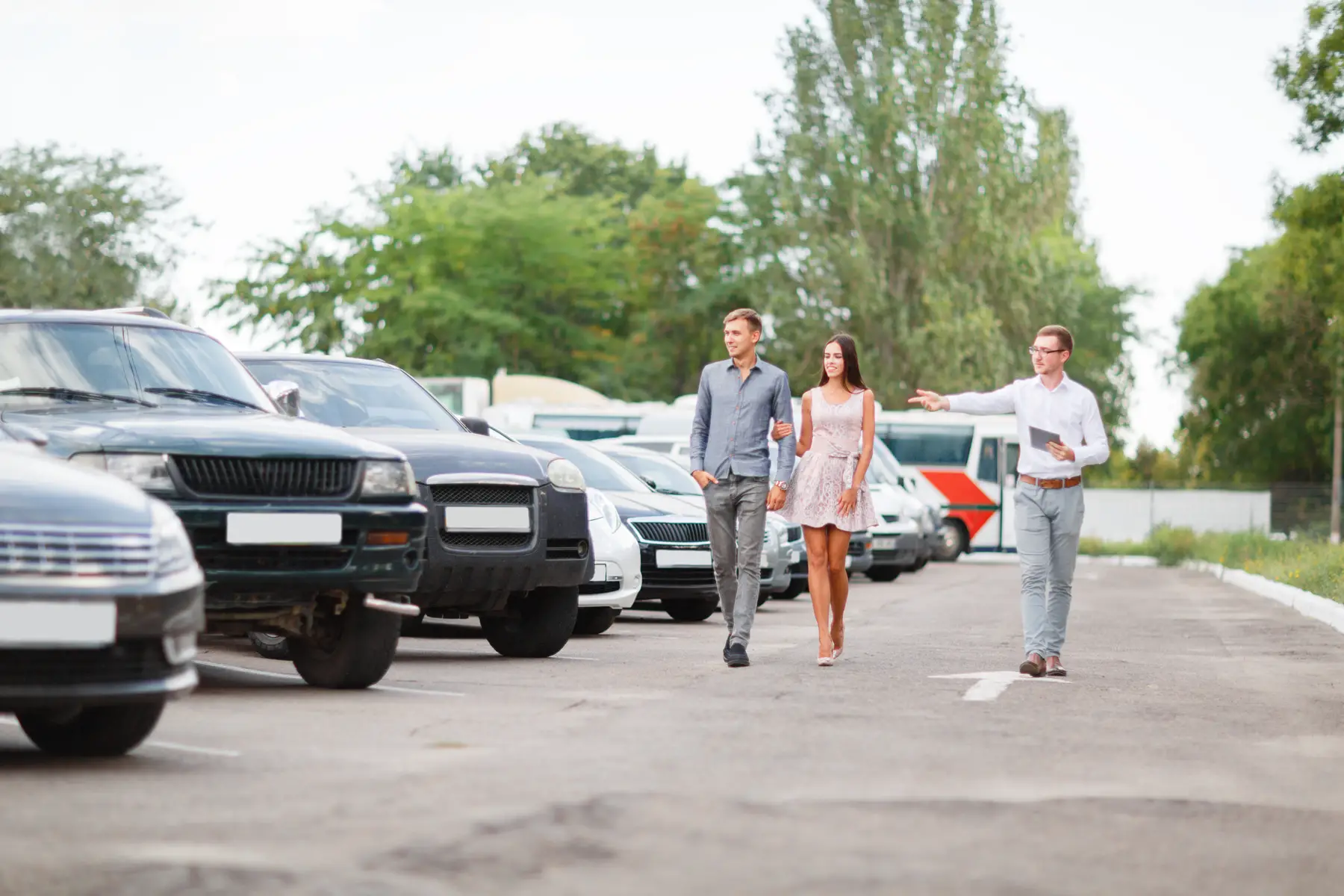
The Belgian authorities have set several requirements in place for buying and selling used cars. This helps to ensure that the used car market meets acceptable quality standards.
For instance, if you buy a used car in Belgium, you are entitled by law to receive the following documents from the seller:
- The invoice, which contains the car details, agreed-on price, the sales guarantee offered, as well as details regarding previous owners and sellers of the car
- A certificate proving the car has undergone a technical inspection (autokeuring/controle technique) within two months before the sale
- A report of the condition of the car following the technical inspection
- A certificate of conformity (gelijkvormigheidattest/certificate de conformité) that shows the car meets the technical specifications set out by Belgian law
- A Car-Pass indicating the number of kilometers the car has traveled
- The pink form (roze formulier/formulaire rose) for registering the car
Where to buy a used car in Belgium
You can buy a used car in Belgium through car dealerships or private individuals. Below is an overview of what these options involve.
Buying a used car from car dealerships
Most car dealerships in Belgium sell used cars, and there are certain advantages to buying one from a dealership. For instance, they provide a range of choices and sometimes offer additional services. These services include a one-year guarantee, financing, and insurance options, an amount in return for your old car, and a maintenance contract.
Since dealerships have many more customers, it is also easier to find information about their service quality and reliability beforehand through reviews. However, car dealerships add their commission and a 21% VAT to the price of the car.
An alternative to buying a car from a dealership is to enlist the help of a car broker. They can source cars from different dealerships across the country, giving you wider access to finding a used car that meets your needs and is also good value for money.
Some well-known car dealerships and car brokers in Belgium include:
Buying a used car from private owners
In Belgium, all private car sellers are required to provide the same set of documents to the buyer as car dealerships. These include the vehicle’s technical inspection certificate and report and the Car-Pass. In addition, private sellers must provide buyers with the car’s original sales invoice. These regulations make the private car market in Belgium more reliable, and as a result, buying a car from private owners is quite common.
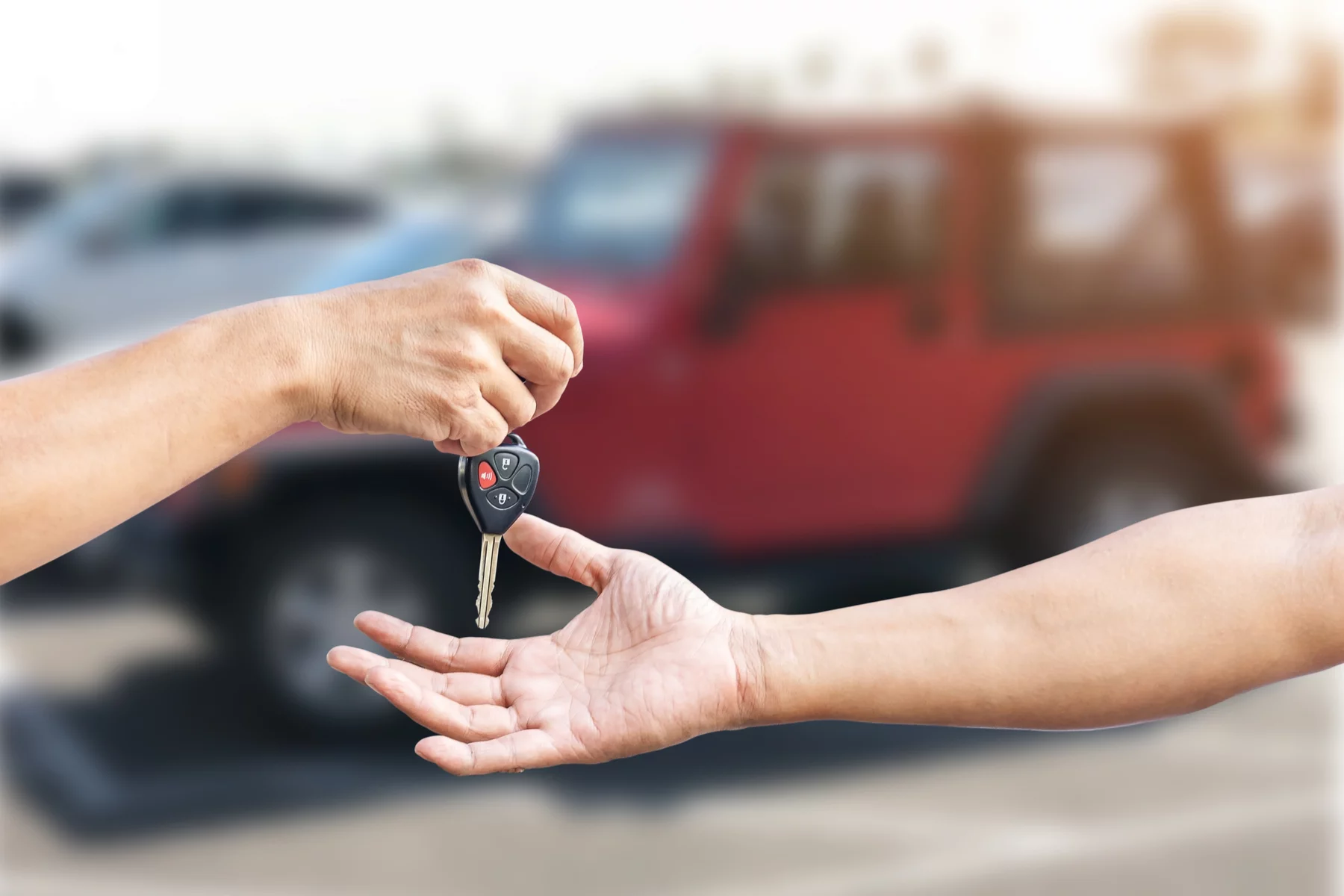
Buying a car from a private owner can also work out cheaper since you don’t have to pay the 21% VAT. However, you are also not likely to get a guarantee, and you may require technical expertise to further inspect the vehicle before purchase. If you don’t know much about cars yourself, then it’s best to take the car to a mechanic for a check.
Finding used cars for sale in Belgium is relatively easy, and there are several platforms where sellers advertise them. You can contact the sellers through these platforms, ask for information, and make an appointment to have a look in person. Some well-known platforms include:
Buying a used car in Belgium online
Both car dealerships and private sellers often advertise used cars for sales online. If you are interested in a particular car, then you can often reserve it online by getting in touch with the seller. However, it is best to conclude the sale in person after inspecting the car. This also allows you to check that the buyer has provided you with all the required documents, including the pink form, which you will need for registration.
Car registration in Belgium
Everyone living in Belgium is required to register their vehicle in the country. The Belgian Vehicle Registration Service is known as the DIV (Dienst voor Inschrijving van de Voertuigen/Immatriculation des véhicules).
To register your car with the DIV, you will need the pink form from the car seller. This form is an official request for registration that is printed on pink paper.
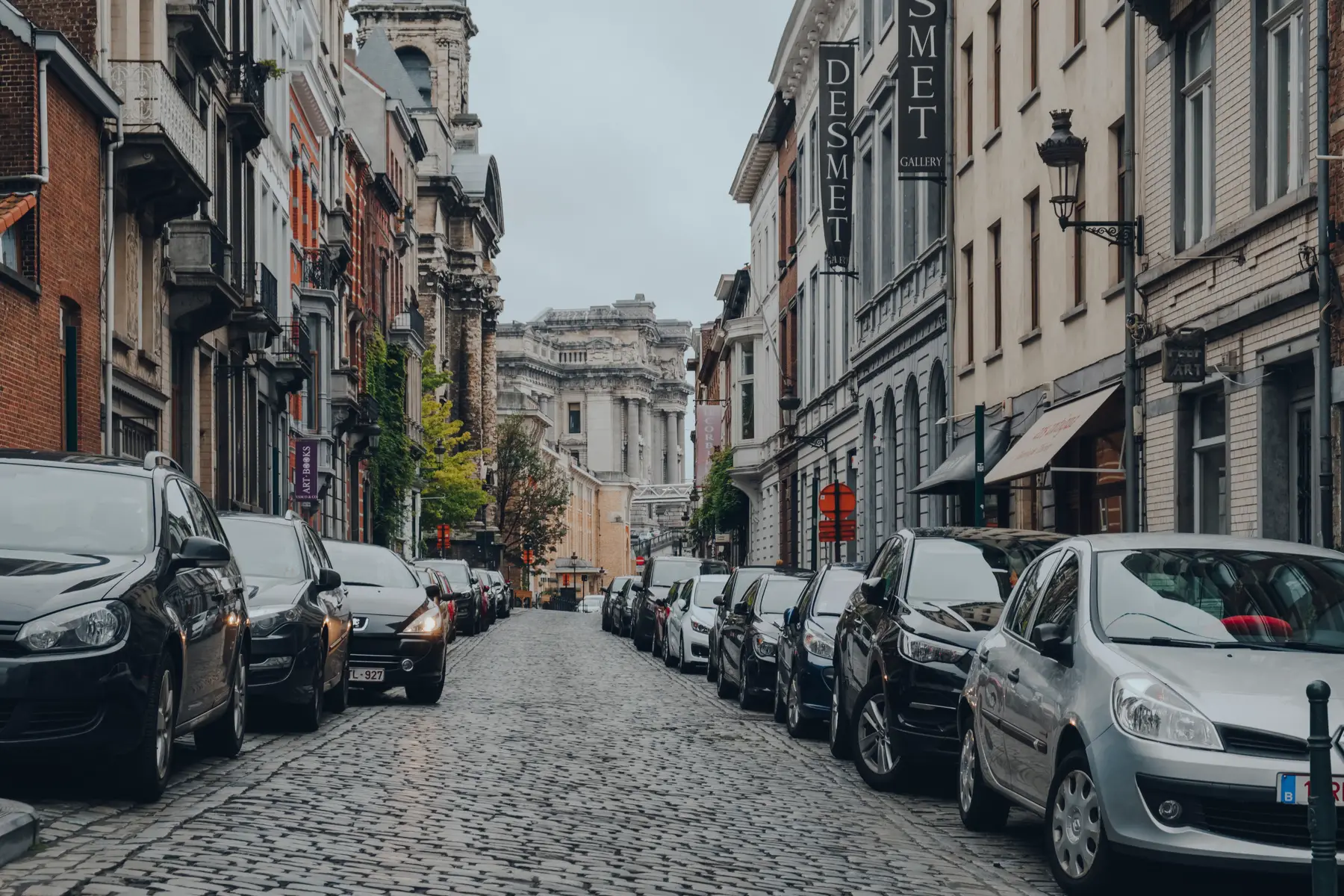
If you are buying or importing your car into Belgium from another country, you can get the pink form from the DIV. Importantly, you are required to register your vehicle within six months of moving to Belgium.
On the pink form, you will have to fill in whether your vehicle is new or used, the type of fuel it uses, and whether you want a new number plate or have one already. You will also have to provide the following documents:
- Belgian residence permit or card with your unique Belgian identification number (rijksregisternummer/numéro de registre national)
- Invoice proving the purchase
- Proof of third-party insurance for the car, which is mandatory in Belgium
- Certificate of conformity (gelijkvormigheidattest/certificate de conformité) showing that the car meets the specifications set out by Belgian law
- Birth certificate – you must be over 16 to register a vehicle in Belgium
Registering your car online
For faster processing, you can ask your car insurer to submit the documents and register your car through the WebDIV application. Notably, this can only be accessed by insurance providers and car brokers. The process only takes one to two days and this way, you can avoid long waiting times. Almost 75 to 80% of all vehicle registrations in Belgium currently go through the WebDIV app.
Car costs in Belgium
Belgium ranks among the most expensive countries in Europe for owning and driving a car. Some costs, such as the registration tax, need to be made only once, at the time of buying a new or used car in the country. However, there are several other costs that Belgian car owners need to incur on a regular basis. These include:
- An annual vehicle inspection carried out at an official vehicle inspection center, which costs €33 per vehicle
- The annual road tax based on the type of vehicle (EV/petrol/diesel/LPG) and engine size
- Third-party insurance, which is compulsory for vehicles in Belgium
Gasoline prices in Belgium are relatively low, currently averaging €1.64 per liter compared to the global average of €3.2. However, prices have increased substantially over the last year and will continue to do so as Europe ramps up its net-zero transition.
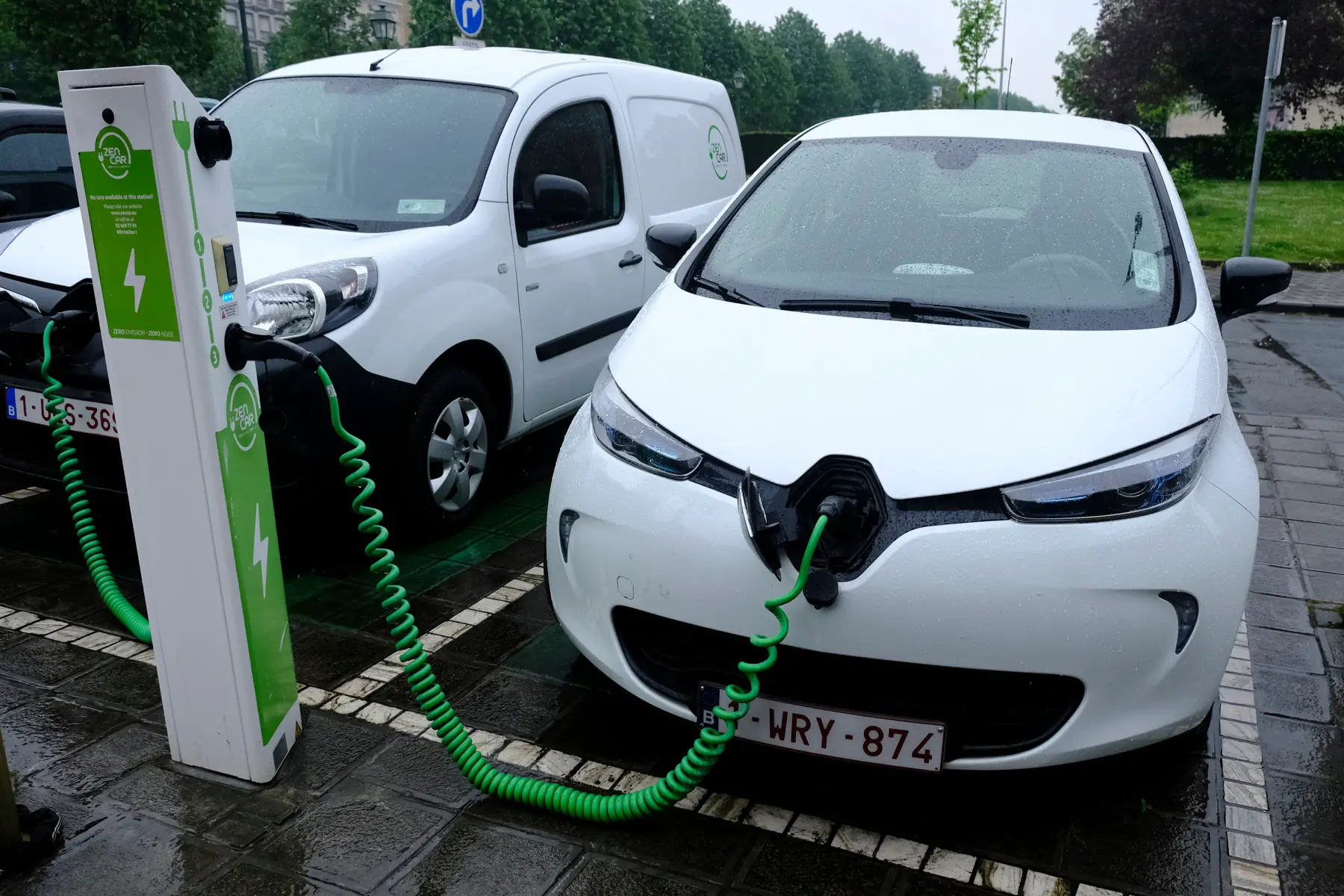
Owners of LPG or diesel vehicles in Belgium are required to pay an additional tax. By contrast, driving an electric vehicle (EV) entitles you to tax exemptions and other financial benefits.
Importing a car into Belgium
It is compulsory to import and register your car in Belgium within six months of moving there. And failing to complete this process in time may lead to a fine. Notably, the process varies depending on whether you are importing your car from within or outside the EU.
Importing a car from the EU
If you are importing from the EU/EFTA, you can usually import without paying any tax in Belgium as long as you’ve paid VAT on any new cars owned for less than six months. Otherwise, you’ll have to pay VAT at the 21% rate.
You’ll need to declare the car at Belgian customs, register it in Belgium and may need to take it for a vehicle inspection. You will need to present the following documents to a Belgian customs office at a location of your choice:
- Belgian residence permit and a Belgian address
- Proof of purchase for your car
- VAT declaration – only in case of a newly purchased car
- Previous registration document for your car
- Proof of insurance cover for your car in Belgium
Following customs clearance, you will have to follow the regular process for registering your car in Belgium.
Importing a car from outside the EU
The process gets a little more complicated and costly if you are importing your car from outside the EU. You will need to declare your car at the first customs office you arrive at on crossing the border into the EU. If this is not in Belgium, you will have to provide a T1 document with the address of the Belgian customs office at your final destination. In addition, you will need to show proof of purchase for your car and the original foreign certificate of registration.
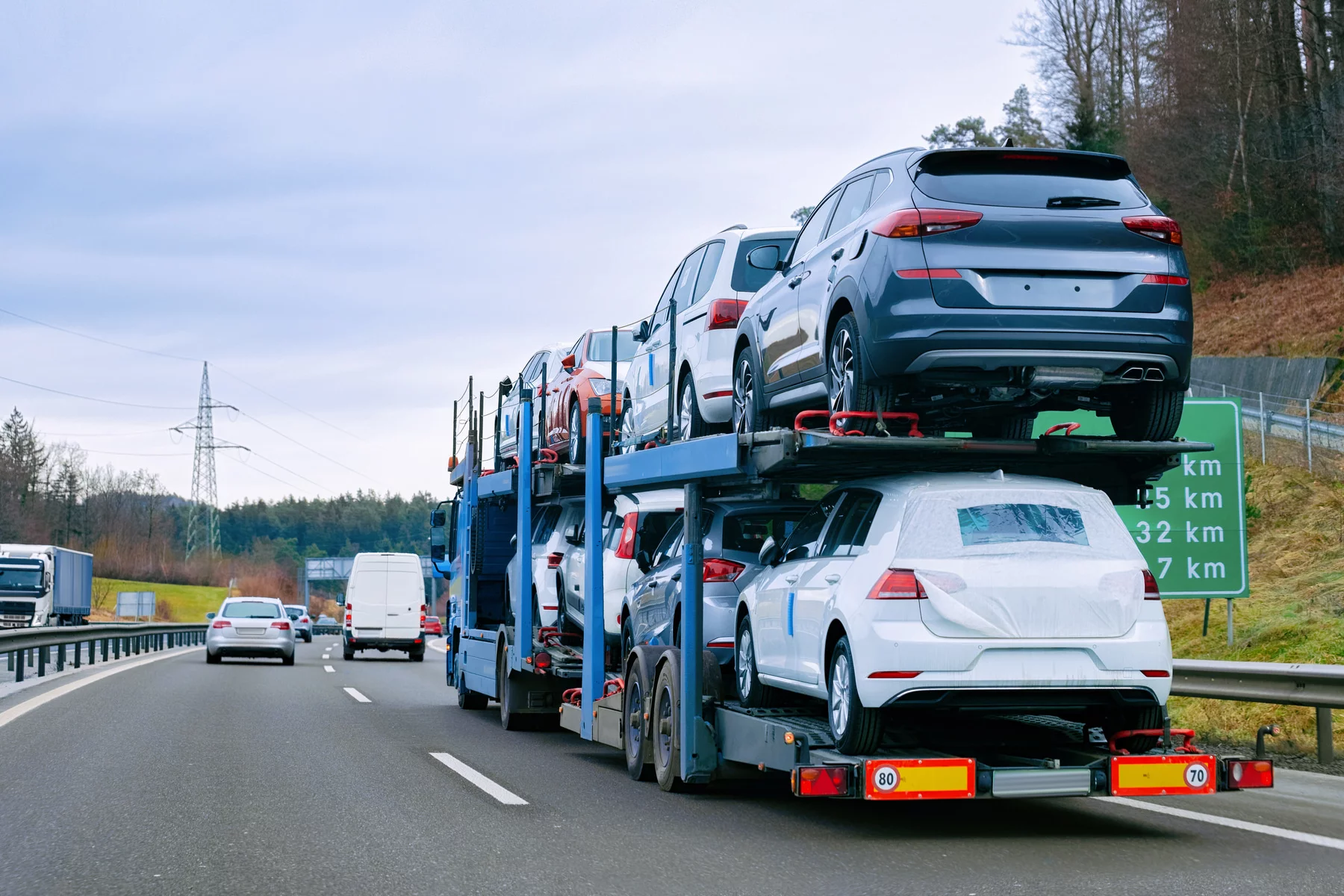
You may be exempt from customs duties and VAT if you are importing your car as part of personal household items. For this you will need to:
- Have lived outside the EU for the previous 12 months
- Have bought and driven the car six months before moving to the EU
- Show you have already paid VAT for the car in another country
- Keep the vehicle only for personal use for 12 months after the import
If you don’t meet these conditions, you will need to pay a 10% import duty and a 21% VAT calculated based on the vehicle type and its customs value. After customs clearance, you will have to register your car in Belgium.
The exact documents you will need depend on your individual circumstances, but usually include:
- Valid ID, for example passport
- Proof of vehicle ownership, for example existing registration certificate
- Belgian residence permit
- Car insurance certificate
- Proof that you have lived outside the EU/EFTA region for twelve months if claiming tax exemption.
Selling your used car in Belgium
If you are looking to sell your car in Belgium, you can choose one of the following routes:
- Approach a car dealership or car broker to sell your car
- Advertise and sell your car on your own
Selling your used car to a dealership
Selling your car to a dealership can be relatively fast and easy, since most dealerships in Belgium trade in used cars. Dealerships and car brokers can arrange all the documents for you and offer a secure sale. However, you are likely to get a lower price as their services come with a fee.
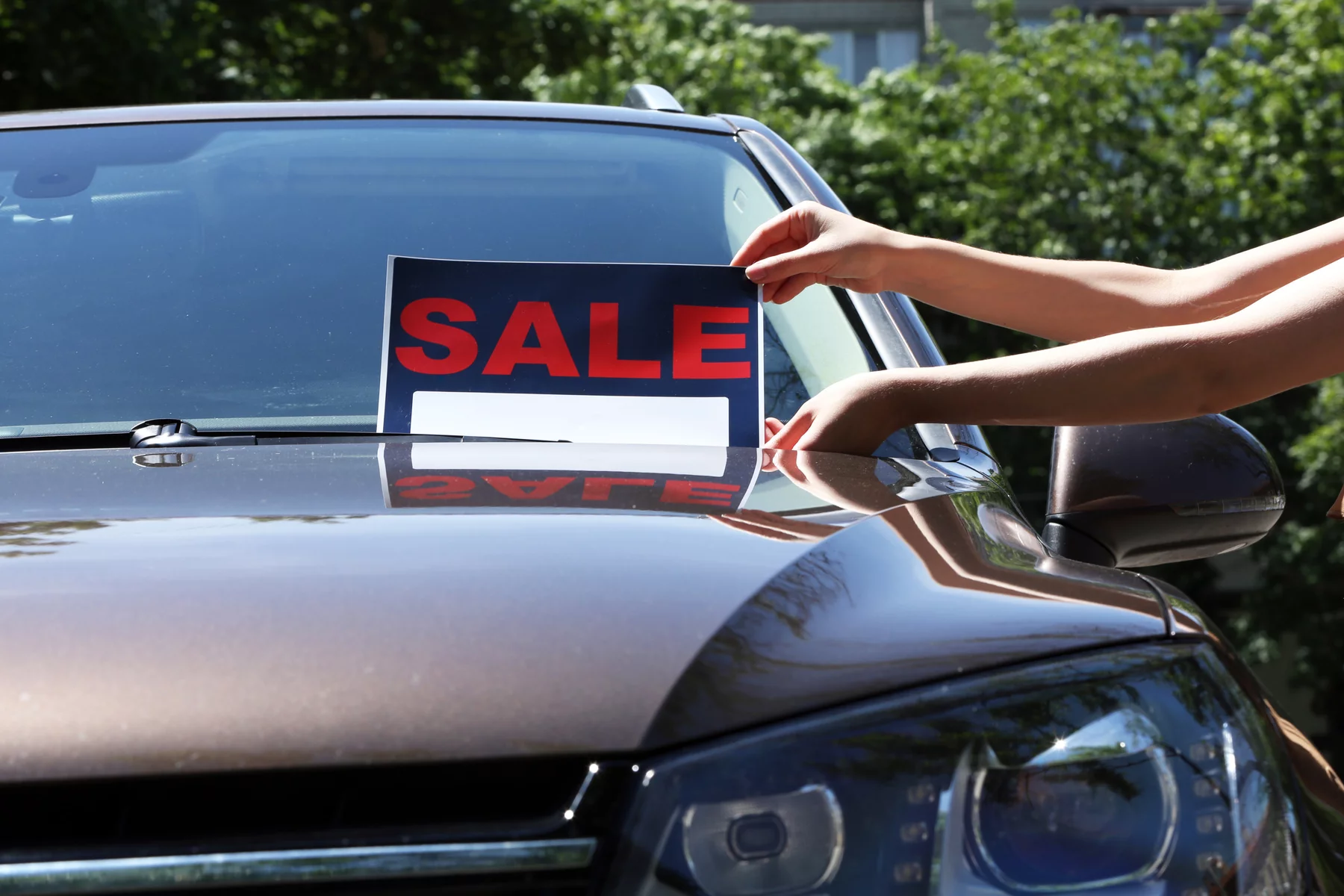
Several dealership websites offer online car valuation tools, and you can get an estimated price for your car using these tools if you fill in all the car details. After that, you will have to take your car to their expert for an in-person valuation to get a final bid.
Selling your used car to a private buyer
If you are willing to put in the work yourself, then it may be worthwhile selling your car to a buyer directly for a better price. There are several online platforms in Belgium where you can advertise your car. Some well-known platforms include:
You will need to provide the buyer with the following documents:
- The invoice, which contains the car details, agreed-on price, the sales guarantee offered, as well as details regarding previous owners and sellers of the car
- A certificate proving the car has undergone a technical inspection (autokeuring/controle technique) within two months before the sale
- A report of the condition of the car following the technical inspection
- A certificate of conformity (gelijkvormigheidattest/certificate de conformité) that shows the car meets the technical specifications set out by Belgian law
- A Car-Pass indicating the number of kilometers the car has traveled – the car must have been driven more than 6,000 kilometers for it to be considered a used car in Belgium
- The pink form for registering the car
Equipment your car needs to have in Belgium
When driving in Belgium, you need to make sure that your car is equipped with the following:
- Warning triangle
- Reflective/fluorescent jacket
- Fire extinguisher
- First-aid kit
Additionally, as a driver, you must always be able to provide the following documents:
- Driver’s license and identity card
- Green or white card issued by your car insurer
- Registration certificate issued by the DIV (Belgian Vehicle Registration Service)
- Technical inspection (autokeuring/controle technique) certificate
- Certificate of conformity (gelijkvormigheidattest/certificate de conformité) issued by your car manufacturer
Useful resources
- ECC Belgium – website of the European Consumer Centre Belgium which provides information (in English) on taxes and documents for buying a car in Belgium
- Belgium.be – section of the Belgian government website with detailed information (in Dutch and French) on buying and selling vehicles in Belgium
- Vlaanderen.be – section of the Flanders regional government website with information (in Dutch, with some pages in English) on owning and driving cars in Belgium
- Vlaanderen.be – section of the Flanders regional government website with information (in English) on road taxes in Belgium
